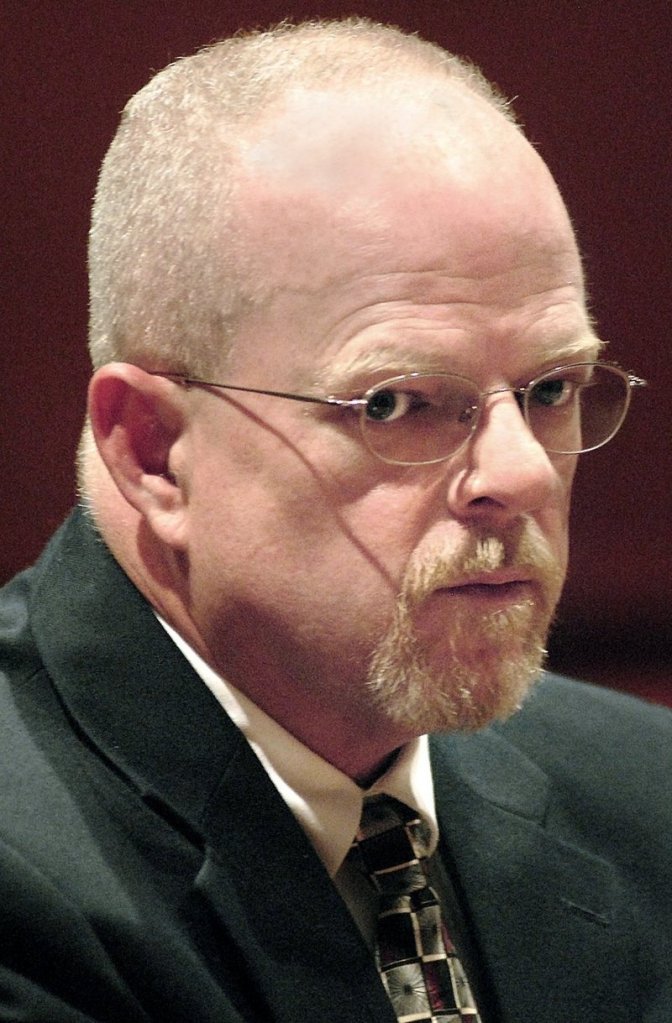PORTLAND – Maine’s highest court heard an appeal Thursday that centered on jury instructions in the trial of a Skowhegan farmer who killed another man during sex play at a South Portland home in 2009.
Malcolm Bruce Lavallee-Davidson was convicted of manslaughter last year for fatally shooting 50-year-old Fred Wilson during a drug-fueled sex party in the basement of Wilson’s home. Davidson had put a gun he thought was unloaded to Wilson’s head as part of their sex games. But the second time he pulled the trigger, the gun fired.
Davidson is serving a 10-year prison sentence. Davidson has also gone by the name Bruce Lavallee-Davidson.
Verne Paradie Jr., Davidson’s attorney, argued before the Maine Supreme Judicial Court that the trial jury should have been told that the prosecution needed to meet a standard of beyond reasonable doubt in challenging Davidson’s assertion that he didn’t think the gun was loaded.
The judge’s failure, Paradie argued, gave the jury an incorrect understanding about the burden of proof.
“We have to presume that the jury misunderstood what the burden of proof was and who the burden of proof is on,” Paradie told the justices.
But Assistant Attorney General Donald Macomber argued that that mistake of fact — in this case, Davidson’s mistaken belief that the gun was not loaded — does not fall in the category of defenses that the state must prove beyond a reasonable doubt.
Macomber noted that mistake of fact is not listed as a defense for manslaughter as it is for some other crimes in Maine.
In a recorded interview with police, Davidson said Wilson had asked him to hold the gun to his head and pull the trigger. He made sure the revolver was unloaded before leaving to use the bathroom, and then acted on Wilson’s request when he returned to the basement.
During the trial, Assistant Attorney General Lisa Marchese argued that Davidson, as the one who held the gun to Wilson’s head and pulled the trigger, had the legal responsibility to make certain it was not loaded.
Paradie, who was not Davidson’s trial lawyer, also argued that the prosecution failed to prove beyond a reasonable doubt that Davidson was criminally reckless or negligent. That argument also hinged on whether Davidson believed the gun was not loaded.
Paradie also found fault with the prosecution’s failure to have a witness identify Davidson in court as the person who pulled the trigger.
Macomber did not address those two arguments in his presentation.
Staff Writer Ann S. Kim can be contacted at 791-6383 or at:
akim@pressherald.com
Copy the Story Link
Send questions/comments to the editors.



Success. Please wait for the page to reload. If the page does not reload within 5 seconds, please refresh the page.
Enter your email and password to access comments.
Hi, to comment on stories you must . This profile is in addition to your subscription and website login.
Already have a commenting profile? .
Invalid username/password.
Please check your email to confirm and complete your registration.
Only subscribers are eligible to post comments. Please subscribe or login first for digital access. Here’s why.
Use the form below to reset your password. When you've submitted your account email, we will send an email with a reset code.